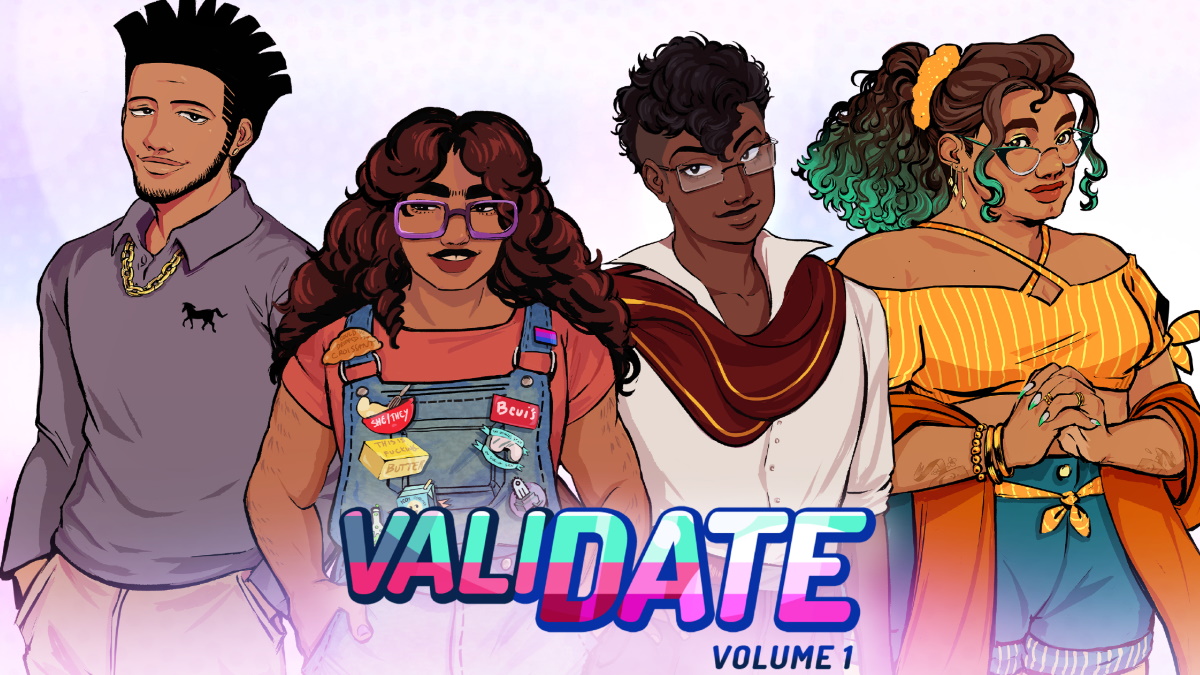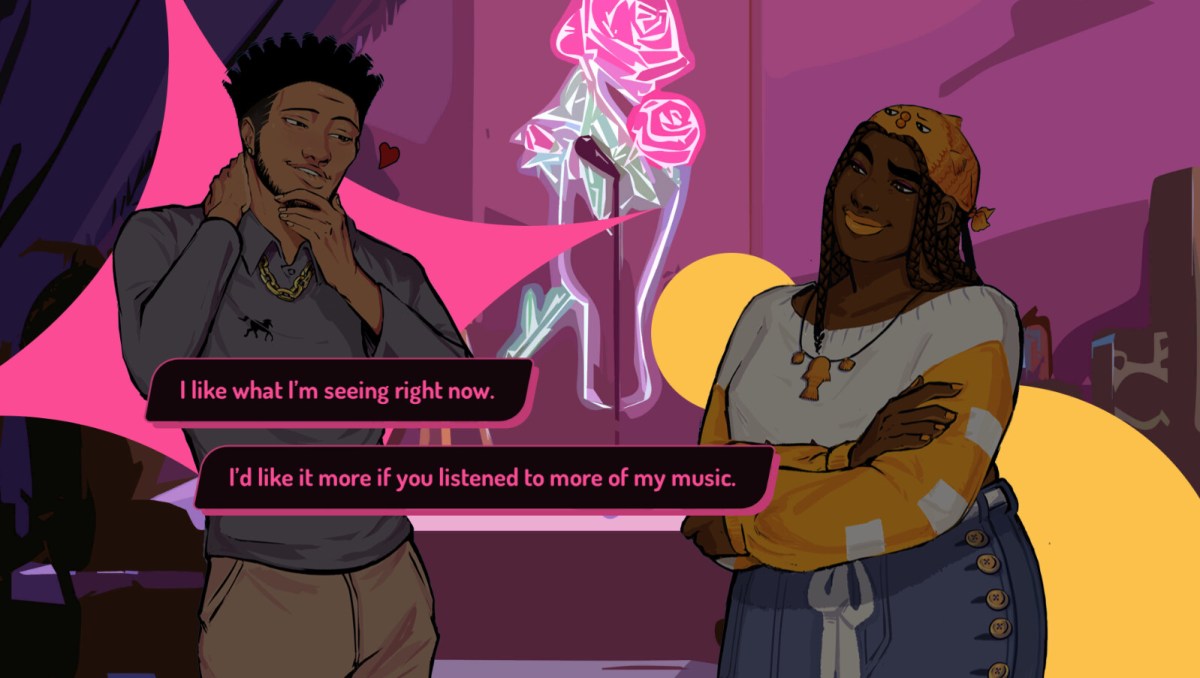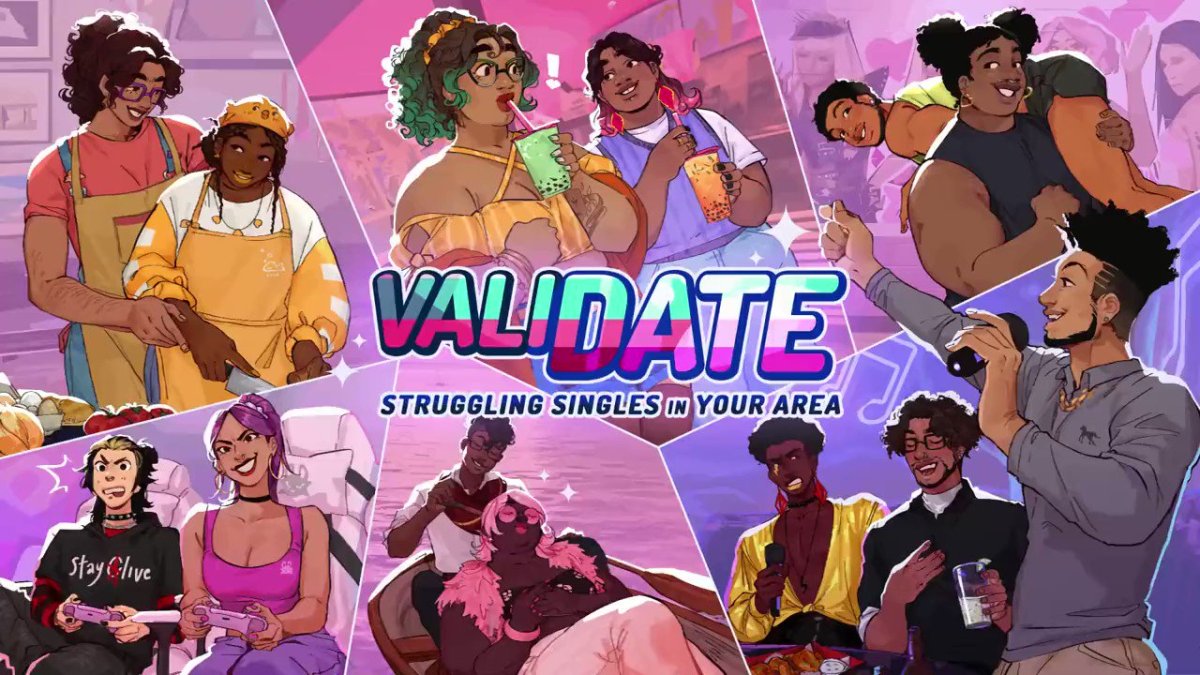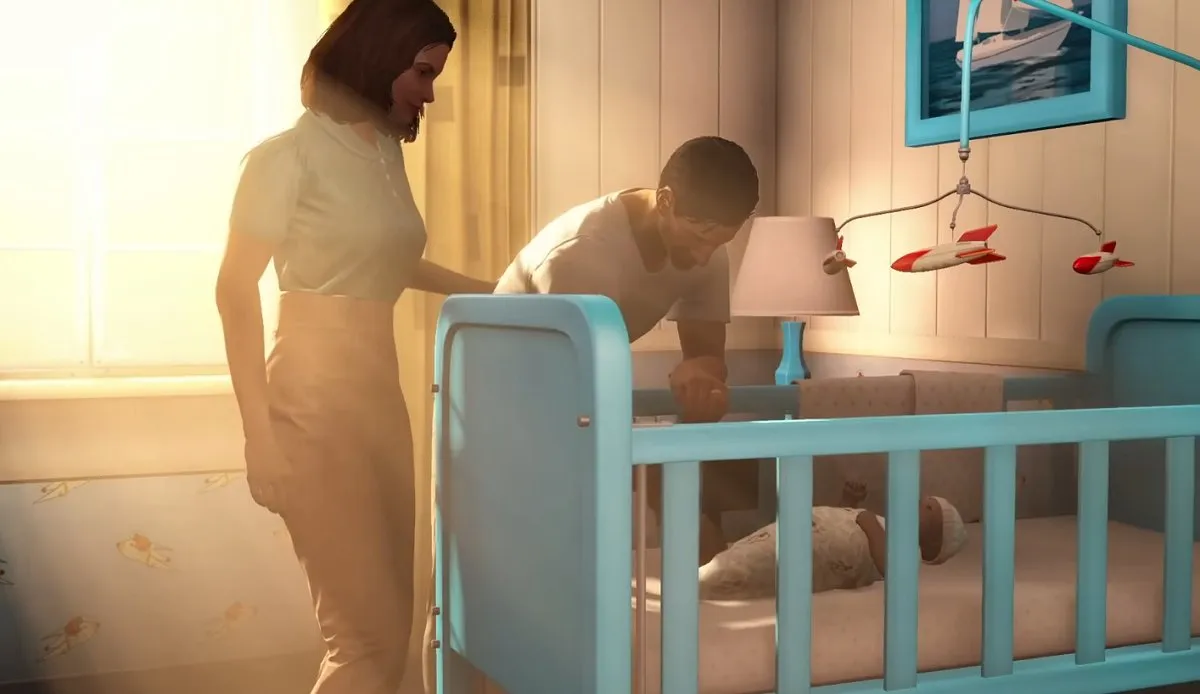You’ve probably consumed a piece of media in the past that was character-focused, with the “actual” plot being somewhat ambling and unclear. Many of these stories can be described as a “bildungsroman”: a story that focuses on one’s growth into the person they want, or are meant, to be. These stories are most frequently encountered in novels and films, with two examples that come to mind being The Idiot, by Elif Batuman, and Frances Ha, directed by Noah Baumbach.
These kinds of stories aren’t for everyone, but they occupy an important space in the overall field of art. People-centric stories give us an opportunity to examine ourselves, our loved ones, and our lives in general, through the lens of people we may pass on the street but never speak to. If we only ever focused on big, flashy plots, boom boom pow, etc., we’d run the risk of forgetting the beauties of being human, even at its most painful.
It’s something the video game industry is still awkwardly trying to navigate, that line between humanity and theatrics. Books and films are easier mediums to use when trying to replicate humanity; with games, it can seem counterintuitive, since most of us play games to escape humanity. But that doesn’t mean that there isn’t a place for bildungsroman-type games, and that we don’t have a need for them. Some of the most memorable games, the most beloved ones, are the ones that tap into this humanity and cherish it, warts and all.
ValiDate was always meant to be such a game, and after three long, hard years of waiting and wondering, it has finally made its debut. ValiDate is a visual novel that takes place in “Jercy City” and follows the relationships that ensue between 13+ “struggling singles in your area.” Currently, there are only four playable characters, but they plan to implement more down the line in separate volumes.
Visual novels have always appealed to me conceptually, but I could never take to them as heartily as others could because they seemed to largely fall into two categories: 1) Flagrant, Fanfiction-y Wish-Fulfillment, or 2) Straight Up Porn. But ValiDate always stood out to me because it seemed like it was trying to tell stories that games tend to shy away from: “normal” ones, i.e. stories about every day people just trying to get by.
I don’t remember where I first heard about this game—likely it was during my “Geek Remix” days—but perhaps you’ve heard of it from the “controversies” surrounding its racial representation. I’m just gonna say this on that and leave the rest for the birds: only greasy gamers would make such a stink about a majority lineup of characters being BIPOC with only one white boy. Prejudice against white people is only a thing in the minds of people who are uncomfortable with the status quo being challenged. Challenging the status quo is a good thing.
The aforementioned “stories about every day people just trying to get by” extends to people outside one’s own spheres of existence and are often the most interesting stories to tell, because the world is a big, beautiful place with all kinds of beautiful people in it, and if you’re not interested in diversifying the narrative because you have some half-baked notions of “woke bad,” then damn, just stay in your Plato cave and let the rest of us have our fun.
We good? Cool. Let’s meet our singles.
Four struggling singles

In Volume 1, we have the options of playing through four storylines with five “dates” each. The characters we can play as are:
- Malik, a 26-year-old rapper who’s still hopelessly smitten with his ex (and second baby mama), but can’t seem to find his footing when it comes to relationships.
- Isabelle, a 27-year-old theater teacher who still lives with her family and feels like she’s being smothered (by life and her own mind).
- Inaya, a 25-year-old “Instaglam” chef who struggles with anxiety and self-image, and whose insecurities are reflected in their dates with others.
- Emhari, a 28-year-old bigender mom of two who’s really trying to ignore his immense baggage while getting out on the town AND being a parent.
I started with Malik, not just because he was chronologically the first but because I was intrigued by his inclusion at all. Black men don’t get a lot of positive representation in video games, and his narrative seemed very reminiscent of Lawrence’s from Insecure, so I wanted to know how it would play out.
His route ended up being, in my opinion, the best-written of the four. There was a perfect balance of introspection and action in his presentation, so that by the end of his route, I felt like I really knew Malik as a person. By contrast, Isabelle’s route was somewhat frustrating, which I feel bad for saying because I really love her character. I relate to the struggles of moving back home to save money, and it seemed like Isa was already a person who was always on the cusp of falling apart.
However, I’ve come to understand that this is less a fault in the writing, and more just a consequence of who Isabelle is as a person. And while it’s frustrating to play through, it’s ultimately very clever—painfully so. It was shocking to see the interpersonal dynamics play out onscreen, but in a way, it was also welcome, since many WOC endure the same kind of criticism and pile-ons that Isabelle does in real life, yet it’s seldom explored in media.
Inaya’s route, however, was so good at replicating self-deprecating inner-monologues that it made me viscerally uncomfortable. Naya doesn’t want to admit it, but they’re afraid of quite a lot, unable to even rest assured that their date with the aforementioned One White Boy was genuine, rather than some kind of setup for a prank. And why do they think this? Because in their mind, and based on past traumas, no pretty Italian boy (however nasty internally) could honestly feel attracted to a tall Pakistani person who doesn’t like to wear makeup or shave their body hair.
OOF. Damn. I had a phone call with a friend after playing this route where I vented to him about how similarly I felt in my own life, and his response was, “Oh yeah, you’ve always shot yourself down before anyone else gets a chance.” Naya baby, I feel you.
Likely though, you’ll end your playthrough on Emhari’s route, and if this was a deliberate design choice on the devs’ part, then kudos to them. Emhari’s got the best of every route, which makes it feel the most “video game-y,” i.e. the most fun to play through—which, you know, is also reflective of his tendency towards being a little bit toxic and dramatic, but the way this gets resolved is almost triggering since it’s so unusual to see. In other words: It’s very rare to see someone get held accountable for their toxic actions, and seeing it happen in a video game was so startling to me that I had to sit back and process what was going on after the fact.
Speaking of triggers: Now that we have the characters and routes out of the way, let’s get into the actual gameplay.
Sort of a game, sort of not

I really haven’t played many visual novels, for the aforementioned reasons. Off the top of my head, the only ones I remember playing are Cinder, Dream Daddy, The Arcana, and Our Life. And each one varied wildly as far as content goes, but ultimately, they had two things in common: your choices carried the narrative forward, for better or for worse, and your romances were all but guaranteed provided you stuck to a route and played your cards right.
In that sense, ValiDate is entirely unconventional.
Regarding the narrative, the stories are pretty set in stone. You can get “bad” and “rare” endings, but they won’t carry the story foward; in order to progress in each route, you have to get the “good” ending. This can be a little frustrating, since the game’s CG and ending screens take some time loading in and out, and having to reload an old save (or restarting the route entirely) can be somewhat tiresome. They do offer an option on the pause menu to just skip to whatever ending you want, but then it feels like cheating, because character developments and interactions are so central to the game, and you ultimately miss out on that just for the sake of moving the story forward.
Where this format succeeds, however, is in its portrayal of “romance” and relationships. It’s the literal name of the game, here, and ultimately what ValiDate‘s whole deal is—therefore, the wonky narrative format works for its intended purpose. ValiDate doesn’t allow you to choose who you want to romance and how you go about doing that; it only lets you choose how the date goes per route. Therefore, the emphasis is less on how your choices dictate the relationships, and more on how wildly differing human relationships can be.
For instance, most of the routes don’t even end in date material. Often they end with a new friend being made, and I love that. Something that irks me about games with romance is how much emphasis is placed on romances, while friendships take a backseat. It’s reflective on the society we live in, where so much pressure is placed on single people to find a mate and have those 2.5 kids, and consequently, we start to lose value within ourselves AND the people we choose as friends. And that’s shitty! When comparing the best friendships I’ve had with the best romantic relationships I’ve had, it’s not even a competition—my friends have the clear win. Romantic relationships require so much compromise and, as a result, a decimation of individual character, unless you happen to luck out and meet someone who can meet you as you are. Friendships demand less, yet can give back more, in ways that ValiDate readily explores.
But sometimes, even friendships don’t work out, and you have to walk away from them with painful learned lessons. ValiDate explores that, too. ValiDate also explores what happens when intimate relationships, new and old, don’t work out. It really explores the full spectrum of modern relationships in a nuanced, thoughtful, and empathetic way that I seldom see explored in media, let alone a goddamn video game.
And in that way, I’m willing to overlook its technical awkwardnesses in favor of what it’s ultimately bringing to the table. There is so much good in this game and its message, and it’s done with the sort of subtle brilliance that sticks with you after you’re done playing it. For example, I went to a party this past weekend where, for once, I found myself not comparing the way I looked to anyone else. It struck me, when I took a break and went to the bathroom, that ValiDate had rubbed off on me: it’s such a body-positive game, with so much love placed on loving diverse body types, that for a moment, I forgot we lived in a world that pretends that there’s only one or two attractive types of bodies. And even aside from that, while I was catching up my friends and acquaintances alike, I didn’t feel as though I was somehow lesser, like I’m so used to feeling. I saw us as just different kinds of characters in the funny world we live in, which is probably the best perspective to operate by in my opinion, and it’s the perspective that ValiDate really drills into you.
Now, with all that being said, I recognize that this isn’t a game for everyone. It’s very talky-talky, even by VN standards, and some people just wanna play a more active game. But the fact that this game exists at all is, in my opinion, a very, very good thing—hence the title of this article. Games are an escape from reality, yes, but they also provide uniquely intimate opportunities to explore aspects of the human experience in positive, helpful ways. And I think we ought to do more of that exploration, especially in a world as toxic and confining as the video game industry.
In the meantime, I’ll be looking forward to the remaining volumes of the game. I’m excited to finally get to play as my favorite character, Yolanda, after seeing her carry everyone’s weight in every route she’s been in—and I really hope there’ll be an option to go on at least one “date” with Alex, Inaya’s hot best friend. Until then, I’ve got my new favorite banger on repeat, courtesy of Malik:
(featured image: Veritable Joy Studios)










Published: Oct 11, 2022 12:29 pm